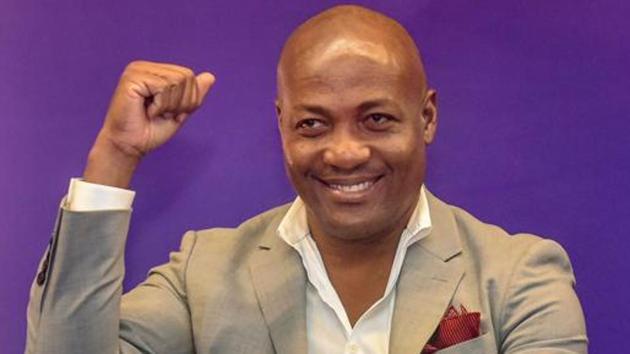India vs West Indies: Modern day cricket is mentally draining, must pay attention - Brian Lara
The “it” that Lara is referring to is mental health, an issue that is beginning to unmask itself in the glossy world of cricket.
Even the greatest in sport have moments when their otherwise steely mind gets affected by pressures and anxieties, and Brian Lara is no exception. After twice rewriting the record books in 1994 by first registering the then highest Test score (375) and the best first-class score (501 not out), the weight of Lara’s rapidly rising career intertwined with the West Indies team’s steady downward spiral.

It began taking a toll on the run machine’s engine. “I felt the pressures of being a double world record holder, and the West Indies team was also on a decline. I remember on occasions where I lay in my room feeling a bit of despair. I had to tough it out,” Lara recalled. “It is real. It is part of all sport.”
The “it” that Lara is referring to is mental health, an issue that is beginning to unmask itself in the glossy world of cricket. There were sprinklings of cases earlier—think of Graham Thorpe, Marcus Trescothick or Jonathan Trott—but it is only now that cricketers are taking time away from the game to address the issue. ‘Big Show’ Glenn Maxwell, Nic Maddinson and Will Pucovski of Australia have all taken a break from cricket to get their mind issues sorted. England women’s team wicketkeeper Sarah Taylor quit international cricket citing her battle with anxiety. Closer home, India captain Virat Kohli revealed his urge of getting away from the game during the 2014 tour of England.
The legendary Lara felt now that more players were coming out and speaking openly about it, mental health problems deserved a closer look.
“It is coming to the fore now with a lot more aggression, with players actually standing up and saying, ‘I need to just reboot myself, find myself and come back again’. We should pay attention to it,” Lara said here on Friday after teeing off for the Habitat for Humanity India’s charity golf tournament.
The stylish southpaw—who retired from international cricket in 2007—believed the rigors of modern-day cricket, with T20 leagues sprouting all around the world, has played its part making the players feel more mentally burnt out.
“The kind of pressures the players face now…before in the 1970s and 80s, you played for the love of the game, you played for your country, you loved Test cricket, you wanted to get out there in the middle,” Lara said.
“Even first-class cricket, with all the franchise cricket going on around in the world, the intensity of the game, it sometimes is a burden. Guys are playing for England and not playing County cricket; guys are playing for Australia and not playing the Sheffield Shield. That just tells you how mentally draining it is. That’s something that we should stand up and pay attention to,” he added.
Tribute to Willis
Lara paid a rich tribute to the late Bob Willis, the legendary England pacer, terming him as a cricketer who played a pivotal role in moving England cricket forward.
Lara distinctly remembers one memorable line among the many narrated by Willis behind the mike as a commentator when the Trinidadian knocked England spinner Gareth Batty for a single to bring up his 400 in 2004, which till date remains the highest individual Test score.
“It’s not selfishness, but every time I listen to that statement he made when I swept the ball from Gareth Batty to backward square leg for a single. He said, ‘This is, maybe the most significant single ever in the history of Test cricket’. I remember that like it was yesterday,” Lara said.
“Bob Willis was before my time, but I have listened to the intimate remarks from people like Ian Botham, Michael Atherton… He laid the foundation and a lot still look at him as sort of a father figure in that (fast bowling) department. Ian Botham told me there was only one fast bowler in our team and that was Bob Willis; there might have been a lot of medium pacers, but there was just one fast bowler.”






